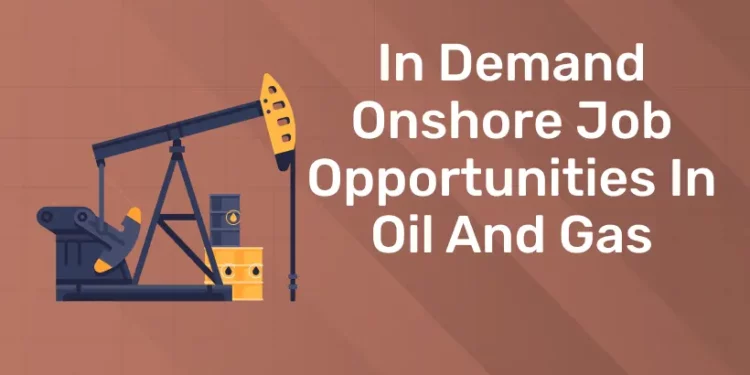Table of Contents
The oil and gas industry is a large sector that spans the world and generates a significantly higher revenue than other industries. This is largely in part because oil is an essential part of the global economy and helps fuel equipment, transportation, drilling companies and various other industries that rely on gas and oil to function. Many of the systems and processes used in the production of gas and oil are complex and requires up-to-date technology to produce. There are three different segments of the oil and gas industry, including:
- Upstream: Upstream companies and corporations are primarily concerned with the product and exploration of gas and oil. Such organizations spend time exploring the world for places that have raw materials for drilling and extraction.
- Midstream: Midstream organizations focus on the transportation of raw materials form one place to another for the processing of these materials. Many of these companies use trucking, pipelines and shipping to complete their transport.
- Downstream: A downstream business is a refinery that processes and removes impurities from raw materials. They convert gas and oil into products used by various industries and the public.
Get Certified! Get Confident! Join our Oil and Gas Course!
13 careers to consider in the oil and gas industry
1: What is the primary purpose of a refinery in the oil and gas industry?
The following are 13 careers to consider in the oil and gas industry
1. Well testing operator
Well testing operators spend their time working with drilling and well location setup, and reporting and flowback procedures. They ensure safe operations and quality control throughout the oil drilling project. Other duties include helping with the rig-up process, conducting operations related to well testing and monitoring others throughout the project.
2. Terminal operator
They monitor the day-to-day operations on oil rigs and other drilling sites. They review the storing and transportation of refined products and crude oil that’s moved through pipelines and trucks. Other duties include maintaining tanks, valves and pipes, performing preventative maintenance on tanks and pumps. It also include overseeing the movement of products in and out of storage tanks.
3. Offshore technician
They work within the oil and gas industry and install, assess and maintain offshore equipment used for drilling. They are also known as process operation technicians. These professionals may work in several areas, including mechanical maintenance and process operations. Other duties may include performing routine repairs on drilling equipment and machinery, assessing risks in the work environment and creating technical reports related to the work done.
4. Oil field worker
Oil field worker positions are typically entry-level jobs that require manual labor in relation to building and maintaining oil rigs. They may also assist with the transportation of tools and equipment. Other tasks include ensuring there are no hazards within the work environment and construction tasks, such as making sure the pipes on a drill site are safe and secure.
5. Foreperson
Leaders in the oil and gas industry work at well sites to manage and oversee extraction processes and operations. They also help install the necessary tools needed for extraction and routinely check drilling equipment. Other tasks include analyzing oil and gas flow, unloading chemicals into drilling tanks and collecting water, oil and gas samples.
6. Oil and gas accountant
They typically work for oil and gas production companies to keep track of budgets, income and expenses. They may help organizations prepare balance sheets and tax reports. Other duties include performing financial calculations related to the oil and gas industry, assessing various tax calculations in the countries and states the organization works in. It also includes handling all bookkeeping needs.
7. Geologist
Geologists in this sector work with teams to assess seismic imaging and review pre-existing drill hole information to gain a better understanding of the rocks under the earth’s surface. They use sedimentary methods find these rocks. Other responsibilities include monitoring the drilling process, assessing rock samples produced throughout the drilling process, and assessing geographical data related to the drilling location.
8. Rig manager
Rig managers work on oil rigs to ensure all employees are following the appropriate policies and procedures related to drilling. They may oversee crews drilling in various locations and ensure the maintenance and safety of oil rigs. Other duties may include assessing rig operations, training new crew members and coming up with solutions to any problems that may arise.
9. Petroleum engineer
A petroleum engineer creates methods to extract gas and oil from reservoirs. They may keep up with research related to new sources of gas and oil, work with geologists and scientists to develop successful drilling methods and work to prevent risks while employees are on the job. Other duties may include creating presentations and reports related to drilling to share with stakeholders and management and overseeing drilling operations from start to finish.
10. Drilling engineer
Drilling engineers often work for multinational companies that produce and extract oil and gas. They analyze and maintain drilling wells and ensure employees are following safety measures. Other tasks include overseeing staff on oil rigs, solving technical problems related to drilling equipment and ensuring operations stay within budget.
11. Gas engineer
Gas engineers install, maintain and repair gas-related appliances and equipment. They may install larger gas systems for industrial organizations and work on commercial projects. Other duties include ensuring all employees are following safety procedures and regulations throughout the project.
12. Surveyor
Oil and gas surveyors work to locate oil resources. They need a strong understanding of offshore and sea bed locations to identify these sources. Other duties may include interpreting data related to oil finds, performing surveys of offshore locations and creating reports for onshore and offshore clients.
13. Pipeline engineer
Pipeline engineers create and build pipe systems that transport oil and gas from one location to another. They also design pipeline systems and oversees the installation of infrastructure used by industrial and commercial organizations. Other duties may include maintaining and repairing pump and pipeline systems, performing quality control testing and working with clients and stakeholders to establish pipeline requirements.
Get Certified! Get Confident! Join our Oil and Gas Course!
Conclusion
Technology has always been a driver in oil and gas industry. To future-proof your career and remain competitive in the ever evolving oil and gas production sector, take the time to upskill yourself by gaining technical skills in areas such as artificial intelligence, machine learning, cybersecurity and blockchain development. If your current employer already offers relevant upskilling programs, take advantage of them.
Remember, while the oil and gas industry is still booming today, it could look completely different by 2040. The same is true for most of the other sectors. So, if you have not already, now is the time to proactively position yourself for long-term career success.









